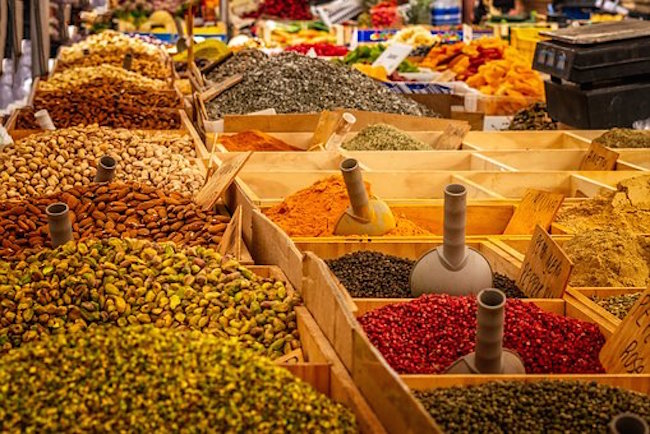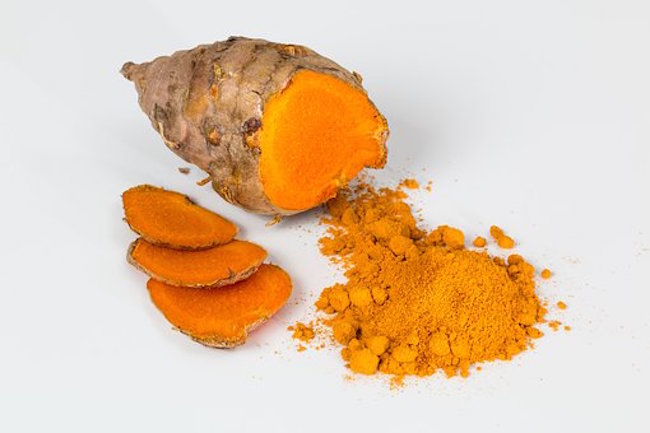Natural herbs and vitamins that will boost your chances from Paul Craig Roberts
GNN Note – Several of the botanicals and supplements are part of our everyday arsenal and have been long before Wuhan virus made an appearance.
******
From Richard Gale:
Support Our Site

Now is your chance to support Gospel News Network.
We love helping others and believe that’s one of the reasons we are chosen as Ambassadors of the Kingdom, to serve God’s children. We look to the Greatest Commandment as our Powering force.
Last Sunday, Gary Null, microbiologist Dr. Roy Spicer and I hosted a three-hour national webinar to present potential preventative measures for protecting ourselves from the current novel coronovirus strain. I have edited my lecture notes into an article about various supplements and botanical medicines that either directly target flu-like respiratory infectious viruses (including coronavirus where the peer-reviewed scientific literature was available) or for strengthening our immune system’s defenses. All the information was pulled from studies found in the National Institutes of Health’s National Library of Medicine and a medical database in China. Given time limits, I have not evaluated the quality of each study or trial. However, in my opinion this summary offers a very comprehensive overview of the preventative options available to supplement our bodies’ defenses to ward off and/or fight respiratory viral infections. Please feel free to share with your friends. It is perhaps one of the more thorough overviews of the medical literature for targeting this new viral strain naturally.
A Scientific Look at Botanical Plants and Supplements Against Coronavirus
Richard Gale and Gary Null PhD
Progressive Radio Network, March 10, 2020
In recent weeks, the coronavirus pandemic has dominated the news at the expense of everything else that is critical and urgent in our lives. As panic increases and more cases are reported daily, health-minded people are eager or even desperate to know whether there are ways to strengthen the body’s immune system to offer some protection from this specific upper respiratory infection.
There are six known strains of coronavirus, four which are associated with the common cold or moderate respiratory infections. Everyone has likely had a coronavirus infection at some time in their lives. However, two strains — Severe Acute Respiratory Syndrome or SARS and Middle East Respiratory Syndrome (MERS) — are more severe. Between the years 2002-2004 and 2014-2018 these strains respectively were observed to be lethal. However, during these periods, total deaths were under one thousand. SARS has the ability to infect the lower respiratory system as well. The current strain being called Covid19 is a new mutation that is being recognized as a novel SARS. As of this writing, the current coronvirus has been attributed to over 4,000 deaths, the large majority among the elderly. In a recent press conference the Surgeon General remarked that the average age of death was 80.
Compared to other viral infections that target the respiratory tract, especially influenza, there has been far less research either to understand the pathway of infection and the drugs or natural substances to battle the virus. It remains uncertain how long immunity lasts, if any, after infection. Seemingly, immunity wanes quickly. Consequently, since coronavirus is most often responsible for a flu-like common cold, recommended prevention and treatment protocols are largely similar to the flu.
During a recent coronavirus task force meeting, Trump asked whether the flu vaccine would protect against the coronavirus. The flu vaccine is not only influenza-specific, it is also flu strain specific. It offers absolutely no protection to any other viruses. Nevertheless we are going to likely witness a sharp rise in propaganda recommending flu vaccines to fight the coronavirus scare. The belief is that increasing national flu vaccination compliance will not only reduce the risks of flu infection but will also help divert money away from flu infections to better deal with the rising coronavirus cases.
But there is a caveat. A very serious caveat.
Sometimes the universe has an unusual way of providing warnings that we have an opportunity to either heed or disregard to our benefit or detriment. On December 31, 2019 in order to usher in the New Year, China reported the first case of an “unusual pneumonia” in its port city of Wuhan. A week later on January 7th, the pathogen was identified as a novel strain of coronavirus. That same month, the prestigious journal Vaccine, published a study conducted by the Armed Forces Health Surveillance Branch at Wright Patterson Air Force Base. Researchers investigated viral interference due to receiving the flu shot; in other words, does the flu vaccine make a recipient more susceptible to other non-influenza respiratory viral infections? The study’s conclusions state “Vaccine derived virus interference was significantly associated with coronavirus and human metapneumovirus.”
This is not the first time that viral interference from the flu vaccine has been associated with an increase in non-influenza respiratory infections. A much more thorough study, an actual clinical trial, was conducted by the University of Hong Kong in 2012. The double blind randomized controlled trial followed a group of flu-vaccinated versus placebo-vaccinated children between 6 and 15 years of age over the course of nine months to determine infection rates from 19 other respiratory viruses. The study found “no statistically significant difference in the risk of confirmed seasonal influence influenza infection between recipients of the [influenza vaccine] or placebo.” However, it was the dramatic number of incidences of non-influenza infections found in the flu-vaccinated group (105 cases), which included coronavirus, as opposed to 54 cases among those who received a placebo. In other words, the results suggest that receiving the flu shot may increase one’s risk of contracting another infectious virus by almost 100 percent.
A recent analysis out of China reviewing rates of infection, targeted populations and mortality reported that the worst hit group is older people, particularly those who have immune-compromised conditions: cardiovascular disease, hypertension, diabetes, chronic respiratory illnesses, etc. Taking this statistic into account, we may note that the majority of American adults have some type of chronic condition. It is estimated that 60% of American adults have at least one underlying health condition and 40% have two or more. For example, 33 million have diabetes and an estimated 84 million are pre-diabetic; heart disease affects 121 million and there are approximately 1.7 million new cancer diagnoses annually. All of these people, therefore, have either a mild to severe compromised immune system.
A Swiss study noted that the SARS coronavirus and influenza share two of the same proteases in targeted cells — TMPRSS2 and HAT. These are responsible for activating the spread of the virus at the point of infection and contribute to their pathogenesis in an infected cell. Therefore it may be partially conjecture on our part to suggest that natural supplements and botanical remedies that have been shown in the scientific literature to be effective against influenza may more or less be effective against coronavirus as well. In fact, last month a study was released by Shengjing Hospital of China Medical University in the Journal of Medical Virology recommending that patients’ nutritional status should be evaluated before any conventional treatment. The hospital recommended a regimen that included Vitamins A, B, C, D, E, Omega-3, Selenium, Zinc, gammaglobulin A administered intravenously and Chinese traditional medicine
Therefore we have scoured the peer-reviewed literature on the National Institutes of Health’s Library of Medicine database to identify compelling studies that may warrant vitamin, antioxidant, and botanical supplementation as a means to protect ourselves from coronavirus and other viral infections. These have been shown to either have strong antiviral properties in general or have known biomolecular effects to strengthen the immune system against microbial infection. We are not offering prescriptions. This is just a summary of some important scientific information for you to make better informed decisions for protecting yourself while the coronavirus wends its course.
BOTANICALS
Astragulus
In Traditional Chinese Medicine (TCM), coronaviral infections belong to a specific epidemic disease category. Astragulus is not only a very popular plant used in TCM, but it is also one of the most researched and promising botanical plants shown to have antiviral properties. In both TCM and Ayruveda medicinal formulas astrugulus has been prescribed for centuries because of its effectiveness against infections and over-stressed respiratory conditions. Compounds, notably saponins, found in astragulus have been well researched and found to hinder influenza proliferation. The US Department of Agriculture’s Avian Disease and Oncology Laboratory found it inhibits avian flu viruses.
Jinlin Academy of Agricultural Sciences in China conducted a study published in the journal Microbiological Pathology that concluded
“Astragulus exhibits antiviral properties that can treat infectious bronchitis caused by [avian] coronavirus”
In China, which has a large poultry industry, avian coronaviruses are a serious threat to chicken farmers. Chinese farmers will often include astragulus in feed to protect the birds from infection as well as pig feed to ward off porcine circovirus.
Two weeks ago, Beijing University of Chinese Medicine completed an analysis of previous research looking at the benefits of Chinese herbal formulas against the SARS coronavirus and H1N1 flu (swine flu). In 3 studies, among participants who took formulas against SARS, none contracted the illness. Nor did any contract H1N1 influenza in four additional studies. A primary ingredient in these formulas’ was astragulus.
Earlier in February, researchers at Beijing Children’s Hospital at the Capital Medical University provided a thorough overview of recommended diagnostic procedures and treatments for specific symptoms witnessed in the current Covid19 infections that included both allopathic and traditional Chinese medicine. In cases where there are signs of severe weakness and stress observed in the lungs and spleen, a formula called Liu Jun Zi is being prescribed, which includes astragulus and ginseng as two primary botanicals.
Last week, the prestigious journal Science published a review out of Yun-nan Academy of Agricultural Sciences in China that investigated the great disparities in infection and mortality rates between different provinces – Wuhan being the most severe. In the provinces with the lowest infection rates, there was between an 84% to 98% use of TCM formulas. Again, two of the main ingredients were Astragulus and Ginseng.




